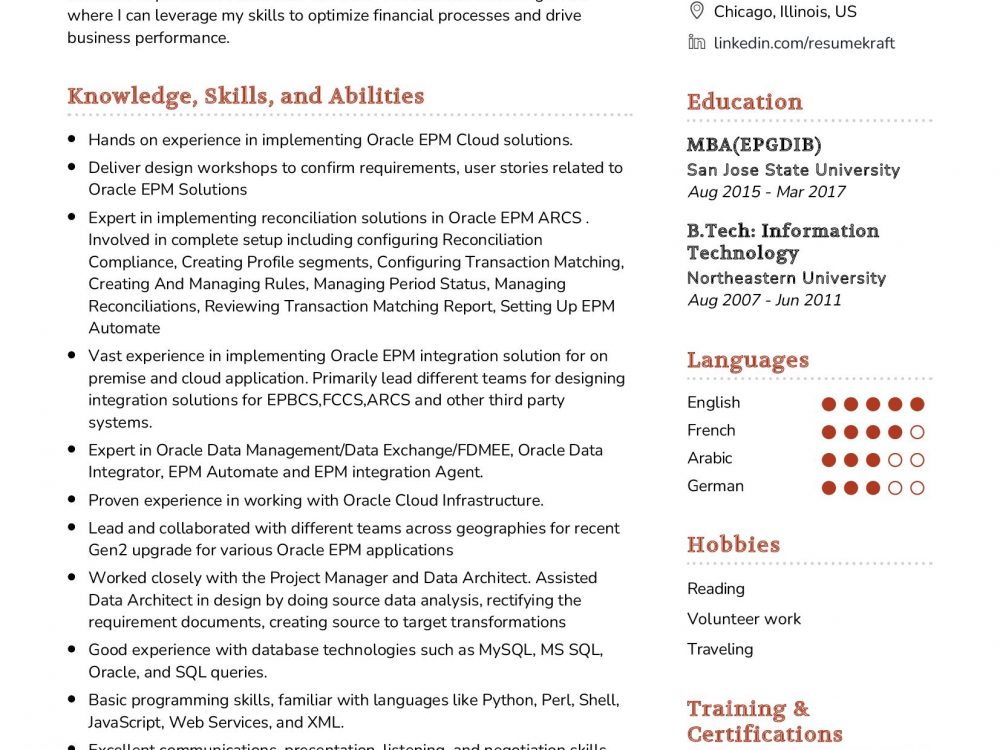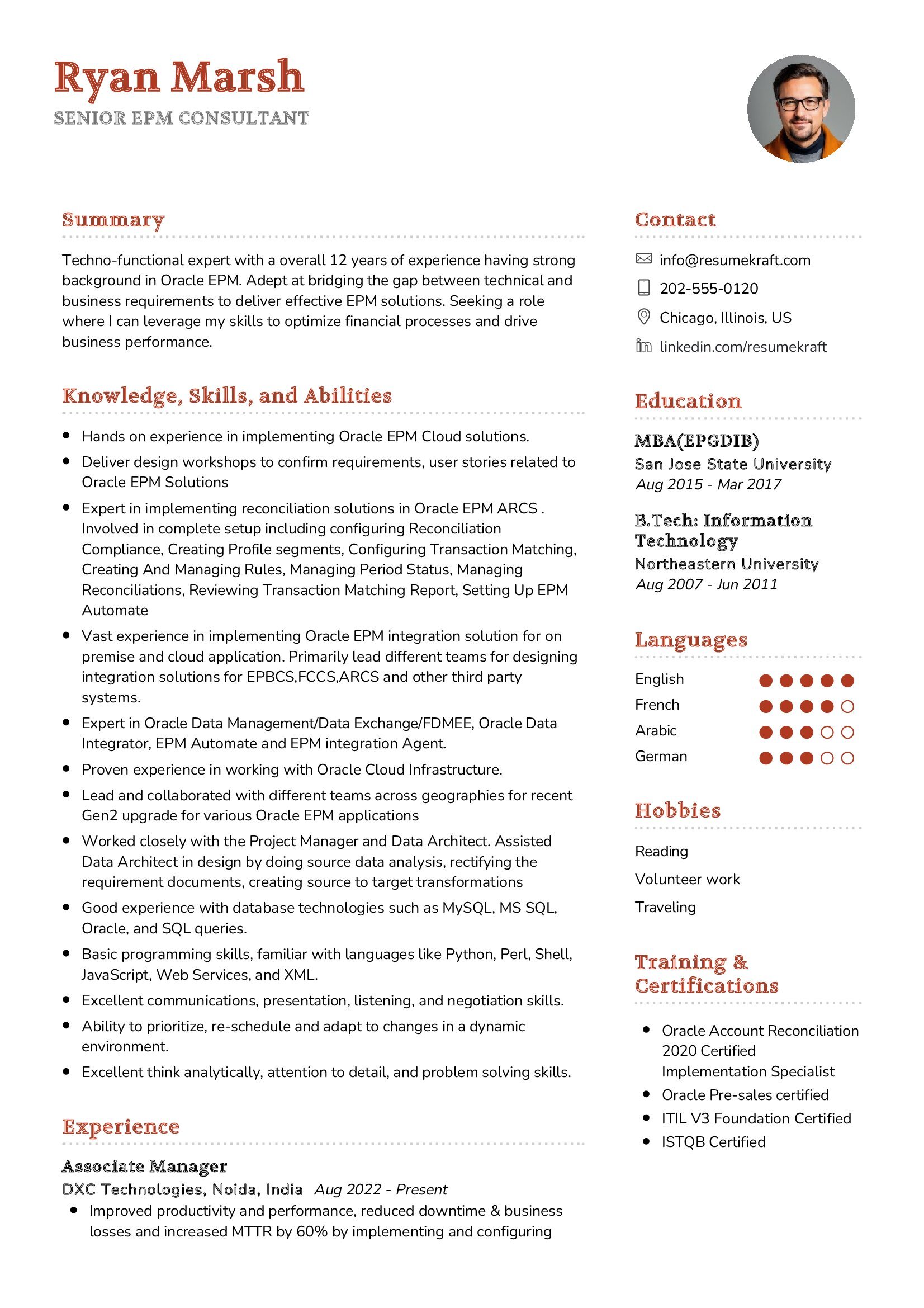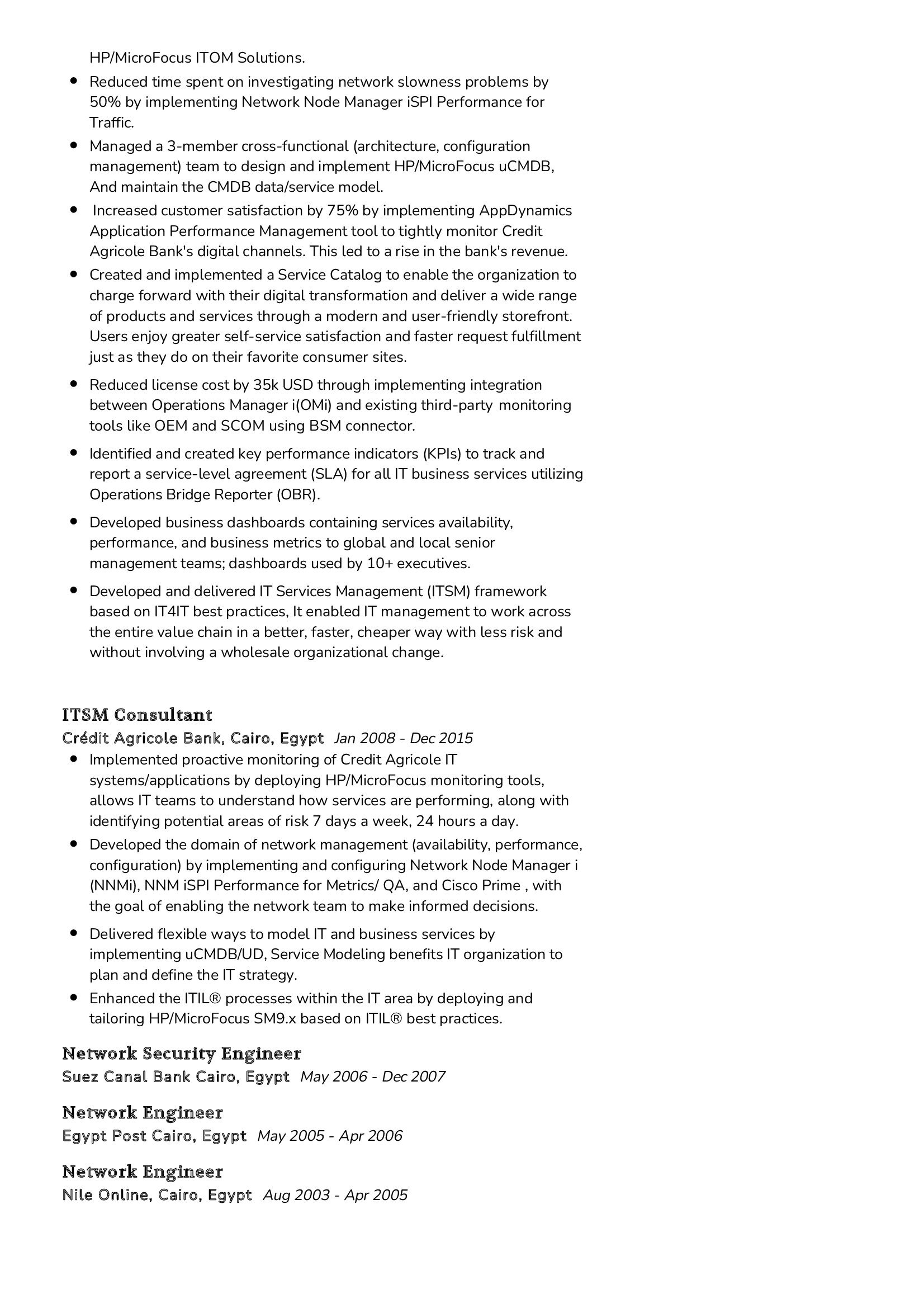The Role and Responsibilities of a Senior EPM Consultant
In today’s rapidly evolving business landscape, organizations rely heavily on Enterprise Performance Management (EPM) to make data-driven decisions and drive growth. The role of a Senior EPM Consultant has become increasingly critical as companies seek experts to help them optimize their EPM processes and systems. This role demands a unique blend of technical expertise, business acumen, and leadership skills. In this comprehensive guide, we will explore the multifaceted role of a Senior EPM Consultant, the qualifications required, their key responsibilities, and how to build a compelling resume for this position.
Qualifications and Education for a Senior EPM Consultant
Becoming a Senior EPM Consultant is a journey that requires a strong foundation in both business and technology. To excel in this role, you should meet specific qualifications and educational requirements:
- A Bachelor’s or Master’s degree in Business Administration, Finance, or a related field. These degrees provide essential knowledge of business principles and financial management.
- Proficiency in EPM software tools such as Oracle Hyperion, SAP BPC, Anaplan, or Adaptive Insights. A deep understanding of these tools is vital for effective EPM consulting.
- Experience in financial planning and analysis (FP&A) roles, which helps you understand the financial needs and challenges of organizations.
- Strong analytical skills and the ability to interpret financial data accurately.
- Excellent communication and interpersonal skills to work effectively with clients and cross-functional teams.
- Project management skills to handle complex EPM implementation projects.
Additionally, obtaining certifications in EPM software tools or financial management can enhance your profile and credibility as a Senior EPM Consultant.
Responsibilities of a Senior EPM Consultant
The role of a Senior EPM Consultant is multifaceted, involving various responsibilities aimed at helping organizations streamline their financial processes and improve decision-making. Here are the core responsibilities that define this role:
- EPM Solution Design: Collaborate with clients to understand their financial needs and design EPM solutions that align with their business objectives. This involves configuring EPM software, creating financial models, and setting up reporting structures.
- Financial Analysis: Conduct in-depth financial analysis to identify trends, variances, and opportunities for improvement. Provide insights to clients on how to optimize their financial strategies.
- Implementation and Integration: Lead EPM implementation projects, ensuring that EPM systems are correctly installed, integrated with other software, and customized to meet the client’s requirements.
- Training and Support: Train client teams on using EPM software effectively. Provide ongoing support to address issues, answer questions, and ensure the smooth operation of EPM systems.
- Performance Optimization: Continuously monitor and optimize EPM systems to ensure they perform at their best. Identify and resolve bottlenecks and inefficiencies.
- Compliance and Security: Ensure that EPM systems adhere to industry regulations and security standards. Safeguard sensitive financial data.
- Client Relationship Management: Build and maintain strong relationships with clients, understanding their evolving needs, and suggesting improvements or expansions of EPM solutions.
Each of these responsibilities plays a crucial role in helping organizations enhance their financial performance and decision-making processes.
Building a Strong Resume for a Senior EPM Consultant
Your resume is your opportunity to showcase your qualifications, skills, and experience as a Senior EPM Consultant. To create a compelling resume, follow these tips:
- Highlight Your Achievements: Instead of merely listing job duties, focus on your accomplishments. Share specific examples of how you improved EPM processes, saved costs, or enhanced financial analysis.
- Showcase Technical Proficiency: Emphasize your expertise in EPM software tools, including any certifications you hold. Mention your ability to work with databases, spreadsheets, and financial modeling tools.
- Quantify Your Impact: Use metrics and numbers to quantify your achievements. For instance, mention how you reduced budgeting cycle times by 20% or increased forecasting accuracy by 15%.
- Tailor Your Resume: Customize your resume for each job application. Highlight the skills and experiences most relevant to the specific role you’re applying for.
Your resume should be a reflection of your expertise and how you can bring value to potential employers in the field of EPM consulting.
Key Takeaways for Your Senior EPM Consultant Resume
As you prepare your resume and pursue a career as a Senior EPM Consultant, remember these key takeaways:
- Combine business acumen with technical expertise in EPM software.
- Emphasize your experience in financial analysis and project management.
- Showcase your ability to design and implement EPM solutions that drive business results.
- Highlight your achievements and quantify your impact on past projects.
Your role as a Senior EPM Consultant is essential in helping organizations optimize their financial performance and make informed decisions. Craft a resume that effectively communicates your skills and experience, and you’ll be well-prepared for success in this dynamic field.
Finally, feel free to utilize resources like AI Resume Builder, Resume Design, Resume Samples, Resume Examples, Resume Skills, Resume Help, Resume Synonyms, and Job Responsibilities to create a standout application and prepare for the Senior EPM Consultant job interview.



